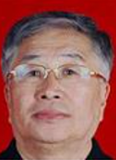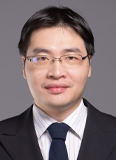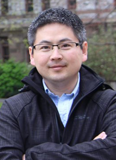
Technical Program Committee Chair

Prof. Feng Li
Jilin University, China
Biography:
Feng Li, born in 1977, is a professor and doctoral supervisor at the School of Mechanical and Aerospace Engineering (SMAE), Jilin University, and a visiting scholar at the University of Iowa. He is a visiting scholar at the University of Iowa, USA. He has long been devoted to the fatigue life analysis of automotive structures, structural noise analysis, reliability analysis and optimization of structural design, finite element analysis of engineering structures, and another related research. He has presided over and participated in more than 10 national, provincial, and ministerial projects and horizontal projects and has published in the International Journals. He has edited a textbook on the mechanics of materials and won the second prize in the fourth "Young Teachers' Teaching Competition" at Jilin University.

Prof. Wanji Chen
Shenyang Aerospace University, China
Biography:
Professor Wanji Chen, Dalian University of Technology (promoted to professor in 1987, doctoral supervisor in 1990, second professor in 2006), retired in November 2006, Shenyang University of Aeronautics and Astronautics (professor), currently director of the Institute of Structural Analysis of Aircraft, Shenyang University of Aeronautics and Astronautics, director of the Key Laboratory of Structural Analysis and Simulation of Aircraft Composites in Liaoning Province, continues to recruit PhD students in solid mechanics, computational mechanics, computational mathematics, etc. He is currently the director of the Institute of Structural Analysis of Aircraft of Shenyang University of Aeronautics and Astronautics and the director of the Key Laboratory of Structural Analysis and Simulation of Aircraft Composites in Liaoning Province, and he continues to recruit PhD students in solid mechanics, computational mechanics, and computational mathematics at Dalian University of Technology. His research areas are composite laminates and aircraft composite structure integral-local higher order theory; mathematical programming methods in nonlinear mechanics; finite-view coupled stress/strain gradient theory and finite elements; and finite-view modified coupled stress laminates theory. Successively proposed the finite element hybrid method for solving elastic contact problems, generalized hybrid element, refined hybrid element, refined incoherent element method, geometric nonlinear incoherent model, nonlinear complementary algorithm for contact problems, strong piecewise test condition for incoherent elements, non-smooth algorithm and immovable point method for contact problems, finite element augmented piecewise test, Mindlin plate unit, convergence test function for even-stressed finite elements, and other convergence test functions for the analysis of aircraft composite structures. Integral-local higher-order theory for structural analysis of aircraft composites. He has published 206 papers in domestic and international journals.

Prof. Weixi Huang
Tsinghua University, China
Biography:
Prof. Wei-Xi Huang's current research focus is on numerical study of turbulent flows over complex boundaries and development of novel schemes for turbulent drag reduction for applications in aerospace and marine engineering. He is also interested in computational biofluid mechanics. He has been developing computational methods for fluid-flexible body interactions, with the goal of simulating and obtaining physical insight into problems from biomechanics, e.g. 2D and 3D flag-in-wind problems, flying and swimming mechanisms, etc.

Prof. Bing Wang
Fuzhou University, China
Biography:
Bing Wang, Associate Research Fellow at the University of Cambridge, UK, PhD, and Postdoctoral Fellow at the University of Hull, is now working at the School of Mechanical Engineering and Automation, Fuzhou University, where he serves as Fujian Minjiang Scholar Distinguished Professor, PhD Supervisor, Assistant to the Dean, Deputy Director of the Key Laboratory of Terahertz Functional Devices and Intelligent Sensors in Fujian Province, and a member of the Academic Committee. He is a life member of Clare Hall College, Cambridge University, a member of the Youth Committee of the Materials Branch of the Chinese Society of Mechanical Engineering, a subject editor and guest editor of the SCI journal Materials, the chairman of the EI-recorded international academic conference MDMA2022, the co-chairman of CAMME2023, the co-chairman of CoMEA2024, and the chairman of the technical committees of several international academic conferences. Mr. Wang is the Chairman of the Technical Committee of several international academic conferences. He has long been engaged in the research of structural strength and the theory of air and space science and technology, mainly carrying out structural and functional co-design, multi-scale structural mechanics modeling, air and space folded structure design, advanced composite materials, and their non-destructive testing, etc. He has presided over many projects at the National Natural Fund, provincial and ministerial levels, the Science and Technology Facilities Council of the United Kingdom. (EPSRC), and other major projects in the field of air and space science and technology. He has published more than 50 papers as the first or corresponding author, including 20 papers in JCR 1, 12 papers in TOP journals, 2 highly cited papers in ESI, with the highest number of citations of a single paper of 297, 5 academic monographs or chapters, and 15 national invention patents. Several scientific research results have been realized for industrial transformation and applied to the Airbus A350, and the research results have been recognized by the EPSRC and the EPSRC. Several research results have been realized and applied to the Airbus A350, and the research results have been awarded by EPSRC.